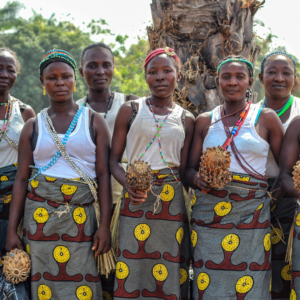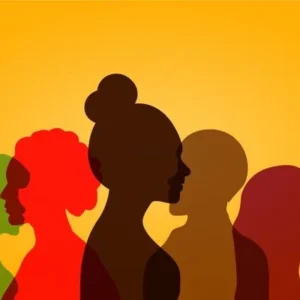Women across the globe continue to drive progress in peace, justice, and development, even as their rights face growing threats. From local communities to formal institutions, women are leading efforts to mediate disputes, advocate for new laws, and support survivors, demonstrating resilience and shaping transformative change. These stories highlight that progress is strongest when people work together to dismantle deeply entrenched barriers to equality.
The UNDP and UN Women Gender Justice Platform, supported by Germany, the Netherlands, and the United Kingdom, fosters women’s leadership and access to justice in over 45 countries. By strengthening rule-of-law institutions and promoting cross-border solidarity, the platform demonstrates that entrenched inequalities can be addressed through collaborative and gender-responsive approaches.
In South Sudan, the platform has supported women’s participation in transitional justice under the 2018 Revitalized Agreement and 2022 Roadmap Agreement. In 2024, parliament passed two laws ensuring women have a voice in the Commission for Truth, Reconciliation and Healing and the Compensation and Reparations Authority. These laws, informed by recommendations from South Sudanese women, offer special protections for conflict-affected women, children, and persons with disabilities, and ensure survivors of sexual violence help shape truth-telling and reparations processes.
In Tanzania, the platform has addressed barriers to justice for women and underrepresented groups, including women with disabilities. Collaborating with the Ministry of Constitution and Legal Affairs, UN Women strengthened legal aid services and awareness campaigns reaching over 56,000 people. The initiative tackled land, inheritance, family disputes, and gender-based violence, while training judges on gender-responsive sentencing to integrate women’s needs into formal legal processes.
In Yemen, where women’s rights are heavily restricted, the platform has supported women mediators and paralegals in community-based dispute resolution. In 2024 alone, over 1,200 family-related disputes were resolved through these informal networks. The platform also assisted around 300 women imprisoned with their children, facilitating their release and reintegration, helping restore family connections and dignity.
Across Southeast Asia, women judges in Indonesia, Lao PDR, and Thailand are reshaping judicial systems through mentoring networks and storytelling initiatives that reflect women’s lived experiences in the law. Honourable Sapana Pradhan Malla of Nepal emphasized the importance of ensuring that laws are inclusive of women’s perspectives to achieve gender justice.
In Colombia, women-led civil society organizations supported by the platform translate global commitments into local action. The Alliance Initiative of Women for Peace engaged survivors, activists, and lawyers to ensure full participation of sexual violence survivors in transitional justice processes, empowering them to reclaim agency and dignity.
Overall, advancing women’s rights and leadership benefits entire societies, promoting equality, economic growth, peace, and development. The Gender Justice Platform, implemented under UNDP’s Global Programme for Strengthening the Rule of Law, continues to foster women’s active participation in justice efforts worldwide, guided by the Women, Peace and Security agenda.






